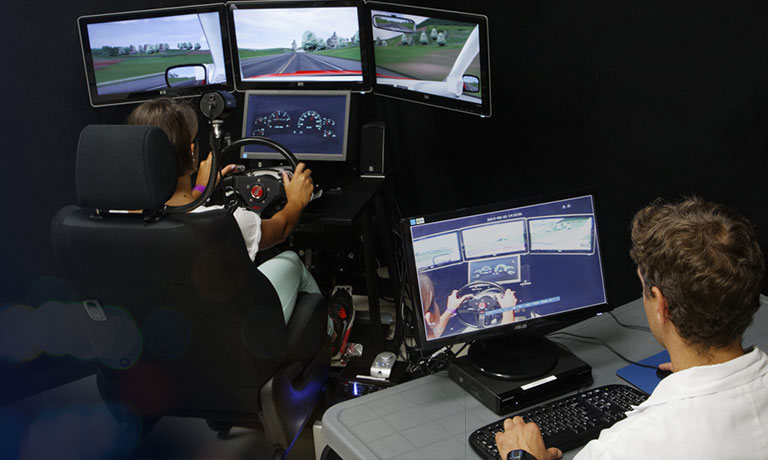Webinar: Assessing Cognition Impairment Using Driving Simulators in Clinical Trials
Over 20,000 FDA-approved drugs are currently on the market, and many contain psychoactive or sedative pharmaceutical ingredients that can alter the ability to operate a motor vehicle, making reducing the incidence of motor vehicle accidents (MVAs) caused by drug-impaired driving a public health priority.
The FDA guidance, Evaluating Drug Effects on the Ability to Operate a Motor Vehicle, indicates that testing in early-phase clinical development should emphasize sensitivity over specificity in CNS effects. While driving or diving simulations are not required tests in early clinical development, the cognitive domains that are important when driving should still be examined. Various psychomotor and neuropsychological tests, including the measurement of reaction time, divided attention, selective attention, and memory, may still be appropriate.
In this on-demand webinar, Ingrid Holmes, Vice President of Global Clinical Operations at Altasciences, and Dr. Gary G. Kay, Ph.D, President of Cognitive Research Corporation, examine simple and cognitive domains in clinical and pharmacology studies, including analysis of driving impairment. In this webinar, you will discover:
- FDA guidance and current trends from regulatory agencies for assessing cognition in first-in-human studies;
- classes of drugs that require CNS assessments, and methods for developing a robust CNS program in early-phase clinical development;
- how to determine the need for a dedicated driving study;
- types of study designs used for cognitive assessments;
- the difference between dedicated driving studies using standardized driving simulators and European on-the-road driving tests; and
- how to ensure your drug meets regulatory requirements.
Watch the Assessing Cognition and Driving Ability in Clinical Pharmacology Studies webinar on-demand:
DRIVING SIMULATION STUDY CAPABILITIES AT ALTASCIENCES
Driving simulator studies are a safe, efficient, and effective alternative to on-the-road driving trials for CNS-active drugs, and Altasciences has partnered with the Cognitive Research Corporation (CRC) since 2014 to measure cognition and driving ability under a variety of circumstances in clinical pharmacology trials. Utilizing 10 state-of-the-art simulators available in-house at our Montréal clinical facility (with the capacity for more than 20), we are equipped to measure a range of studies; from impairment in cognition and comparing compounds to assessing the impact on new formulations have on impairment.
Altasciences has conducted over 13,000 simulated drives in support of drug development, all of which were performed using CRC’s custom driving simulators (CRCDS) MiniSim, that create immersive, fully realistic driving simulation—with auditory feedback provided for engine speed, acceleration limits, and indication of excessive cornering speed, and deceleration when braking.
(CRCDS) MiniSim, that create immersive, fully realistic driving simulation—with auditory feedback provided for engine speed, acceleration limits, and indication of excessive cornering speed, and deceleration when braking.
Altasciences’ ability to design and conduct specialized tests, combined with our partnership with CRC, allows us to seamlessly incorporate driving simulation elements into your clinical trials.
View the Driving Simulation Fact Sheet for more information.



